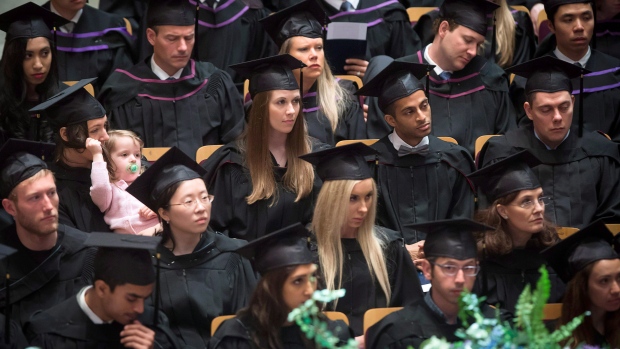América del Norte/Canadá/Julio de 2016/CBC News Posted
RESUMEN: El número de personas con grados avanzados de post-secundaria que realizan trabajos de bajos salarios ha aumentado en un 60 por ciento en Canadá desde 1997, según una nueva investigación por el Centro para el Estudio de Niveles de Vida.
Los hallazgos fueron publicados el miércoles en el informe amplio del grupo sobre la evolución del empleo de bajos salarios en Canadá: incidencia, intensidad y Gap, 1997-2014. «Las personas con [másters y doctorados] – sólo el ocho por ciento de ellos en 1997 tuvieron un trabajo de salario bajo, ahora se ha ido hasta un 12 por ciento,» dijo Andrew Sharpe, director ejecutivo del centro. «Básicamente las posibilidades de las personas con educación superior para conseguir un buen trabajo han disminuido con el tiempo.»
By Jackie Sharkey,
The number of people with advanced post-secondary degrees doing low wage work has increased by 60 per cent in Canada since 1997, according to new research by the Centre for the Study of Living Standards.
The findings were released Wednesday in the group’s wide-ranging report on Trends in Low Wage Employment in Canada: Incidence, Gap and Intensity, 1997-2014.
«People with [master’s degrees] and PhDs – only eight per cent of them in 1997 had a low wage job, now it’s gone up to 12 per cent,» said Andrew Sharpe, executive director of the centre. «Basically the chances of highly educated people getting a good job have fallen over time.»
For the purpose of the study, low wage work was defined as work that paid $16 an hour or less.
That’s something Stefan Jackowski knows all too well. He graduated with a PhD in kinesiology in 2013 from the University of Saskatchewan.
«I didn’t think it would be easy, but I didn’t think it would be as difficult as it’s proving to be,» Jackowski said. «It just seems these days there are lots of strong candidates with PhDs in the health sciences field … all vying for a limited pool of jobs.»
Jackowski said kinesiology was his second post-doctoral program. He said he’s applied for 10 jobs since the beginning of 2016. He’s had three interviews, but no job offers.
Supply vs. demand
Part of the problem is the supply of highly-educated workers is outpacing the demand for their expertise, Sharpe said.
«The number of people with a university education has literally doubled in Canada between 1997 and 2014,» he said.
«We’ve expanded our educational facilities and our programs significantly. We always think that education is the ticket to a good job and it is … but it’s increasingly not a guarantee.»
Still, Sharpe said the numbers shouldn’t discourage people from pursuing higher education and suggested the onus should be on employers to create more jobs for highly-skilled workers.
Fuente: http://www.cbc.ca/news/canada/kitchener-waterloo/kw-high-education-low-wages-1.3678873







 Users Today : 23
Users Today : 23 Total Users : 35460232
Total Users : 35460232 Views Today : 28
Views Today : 28 Total views : 3418923
Total views : 3418923